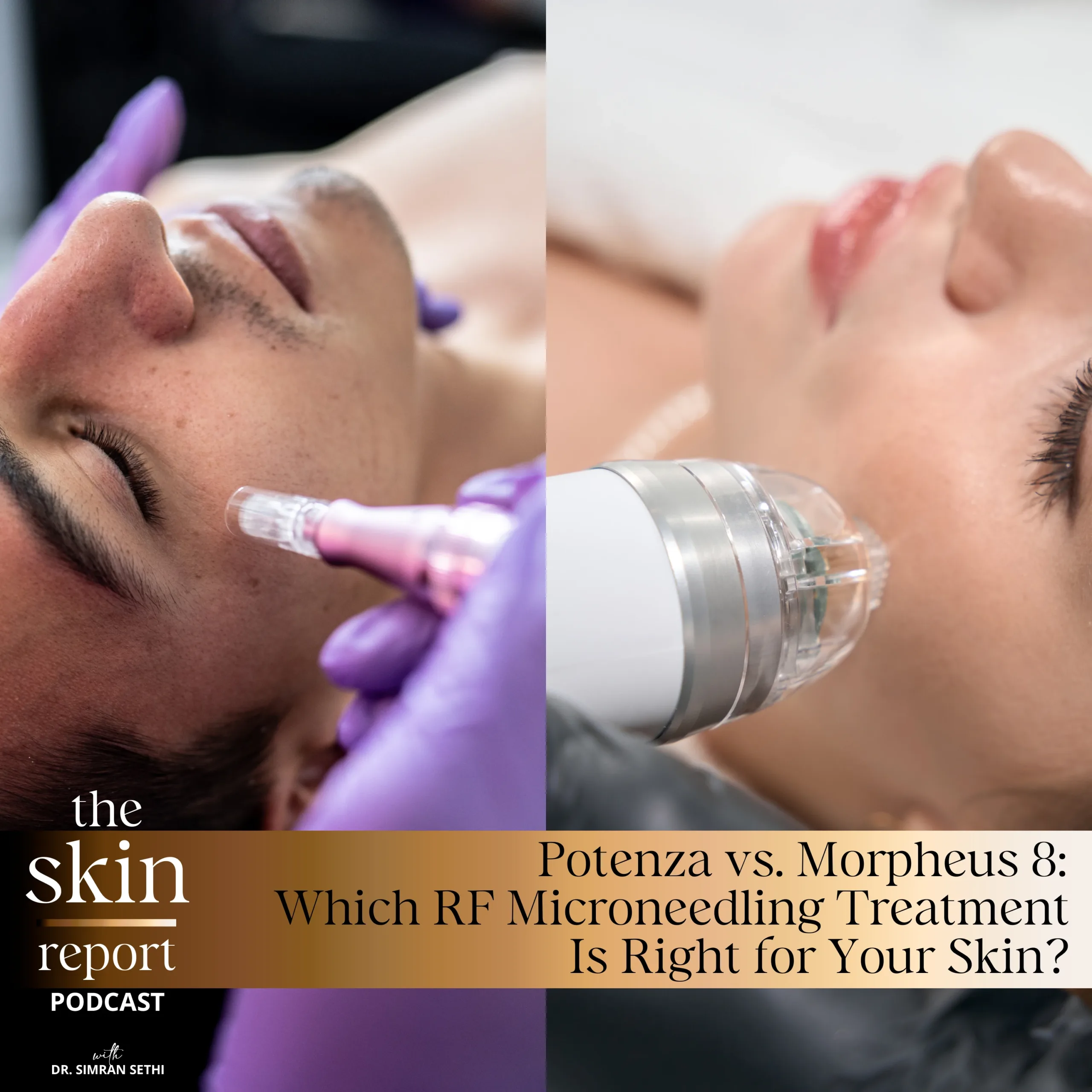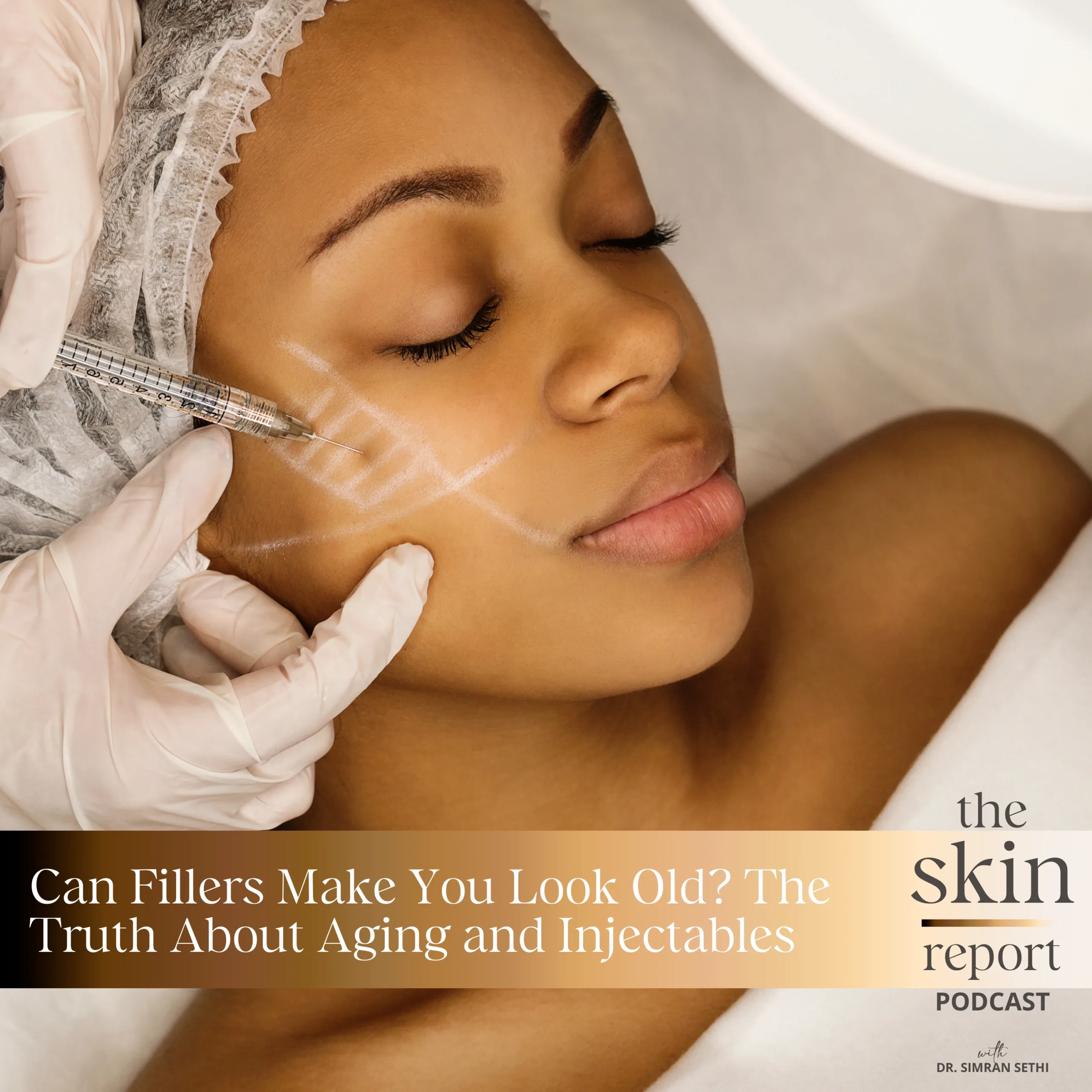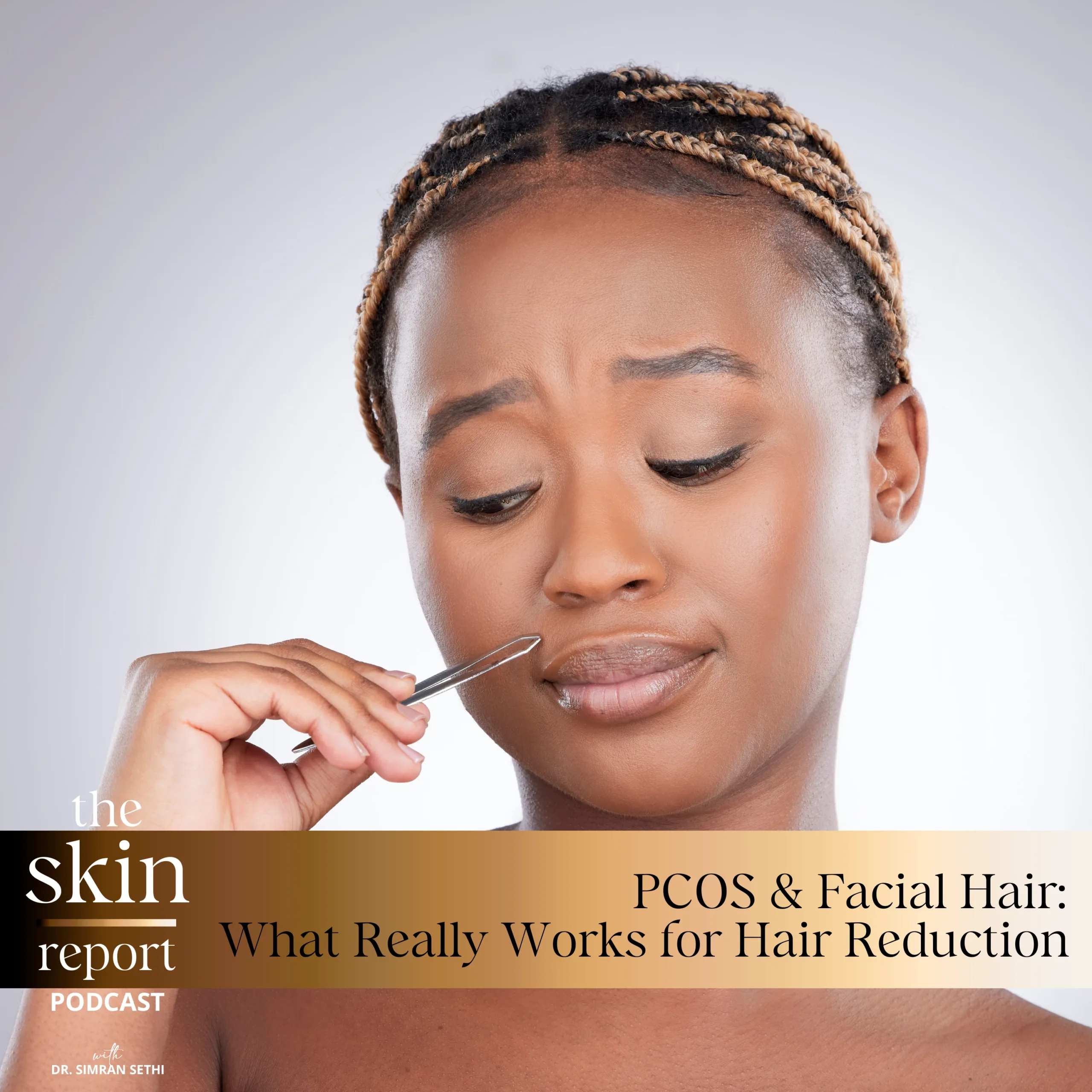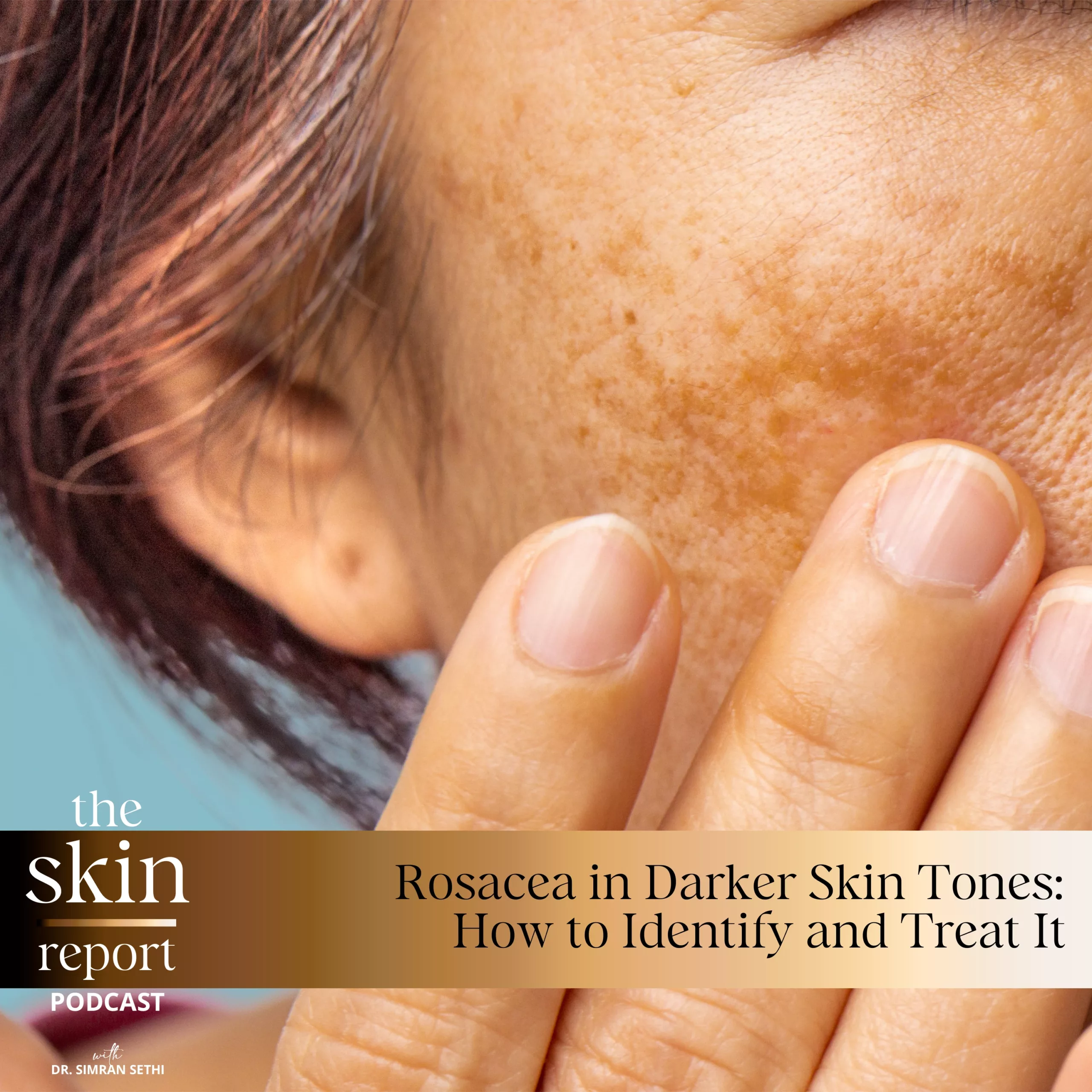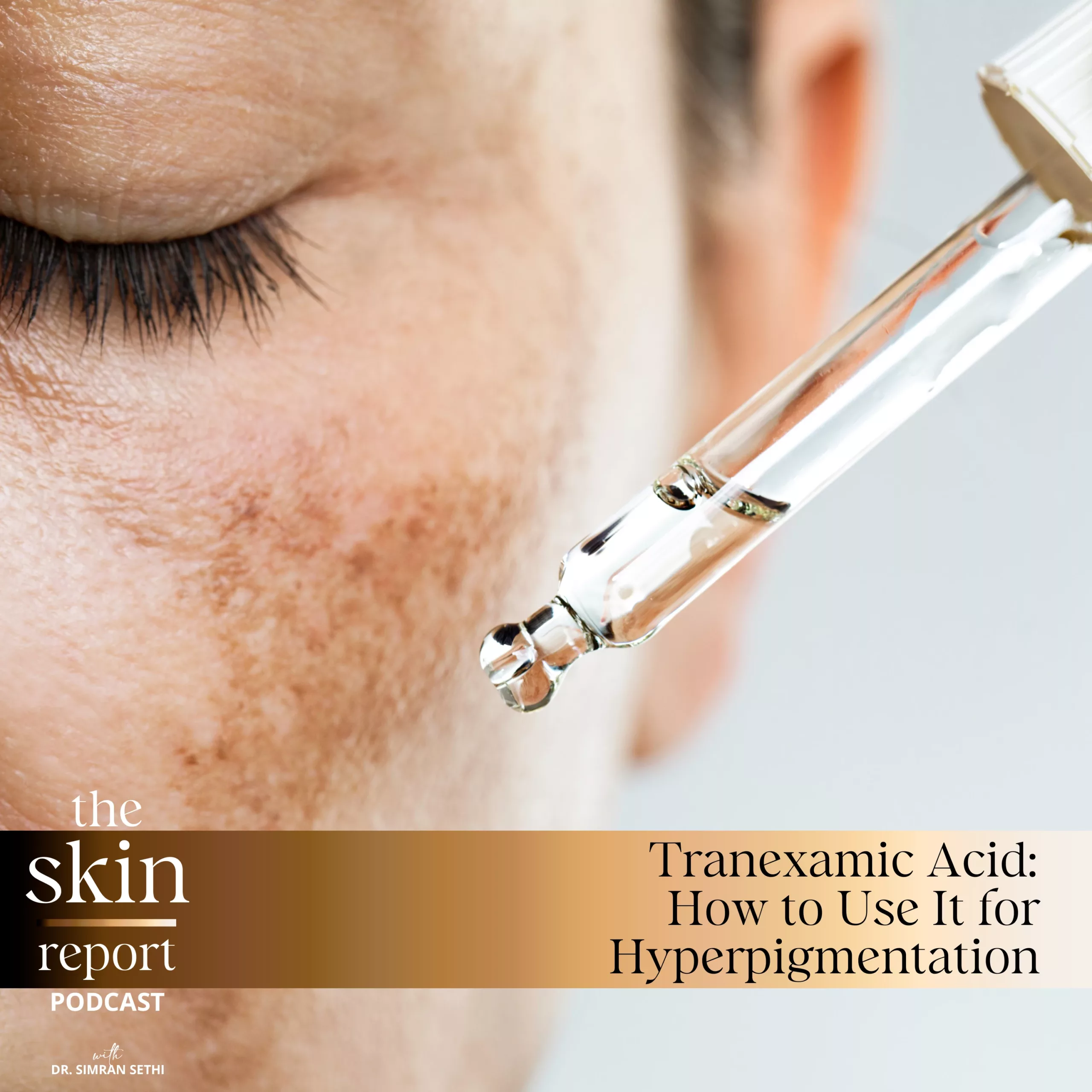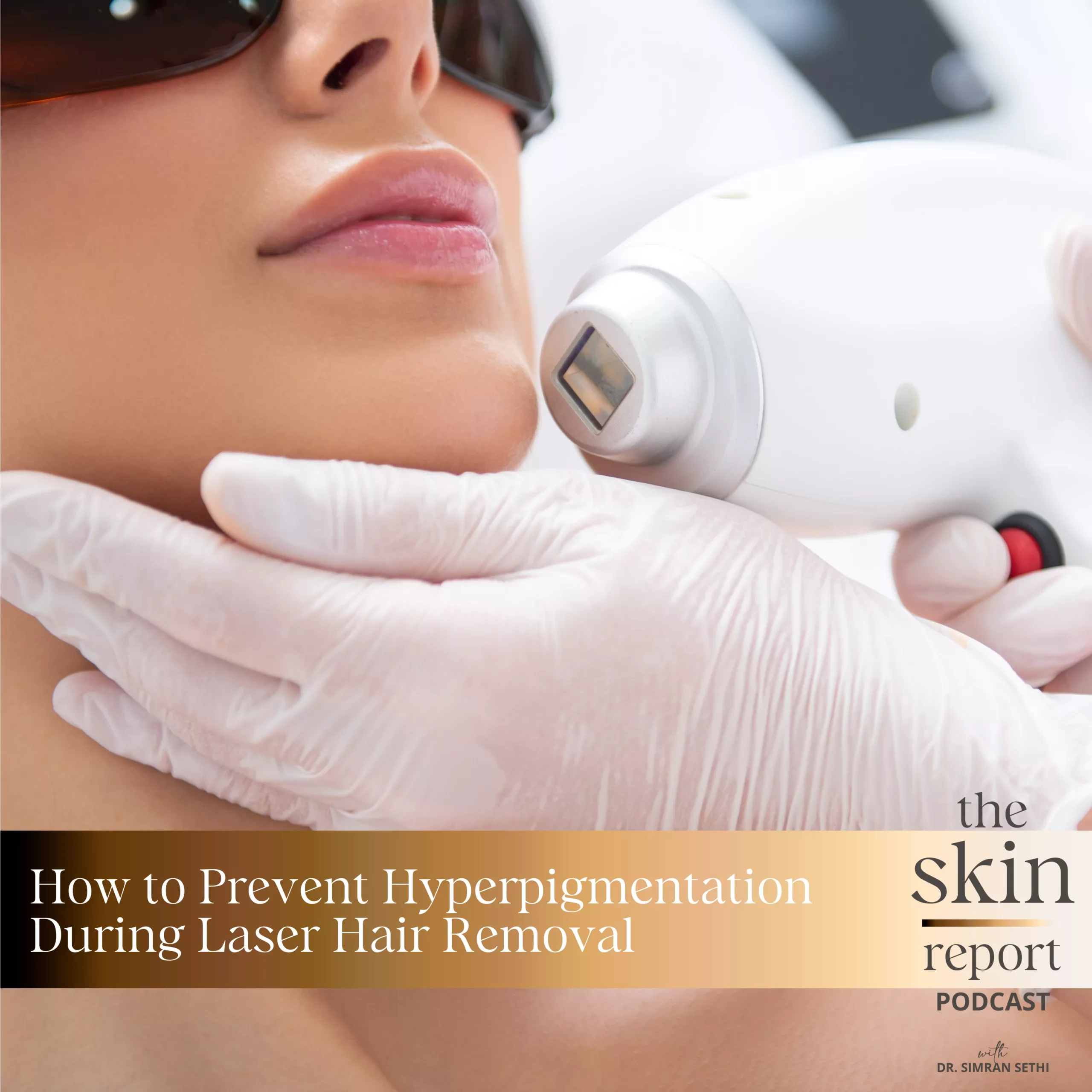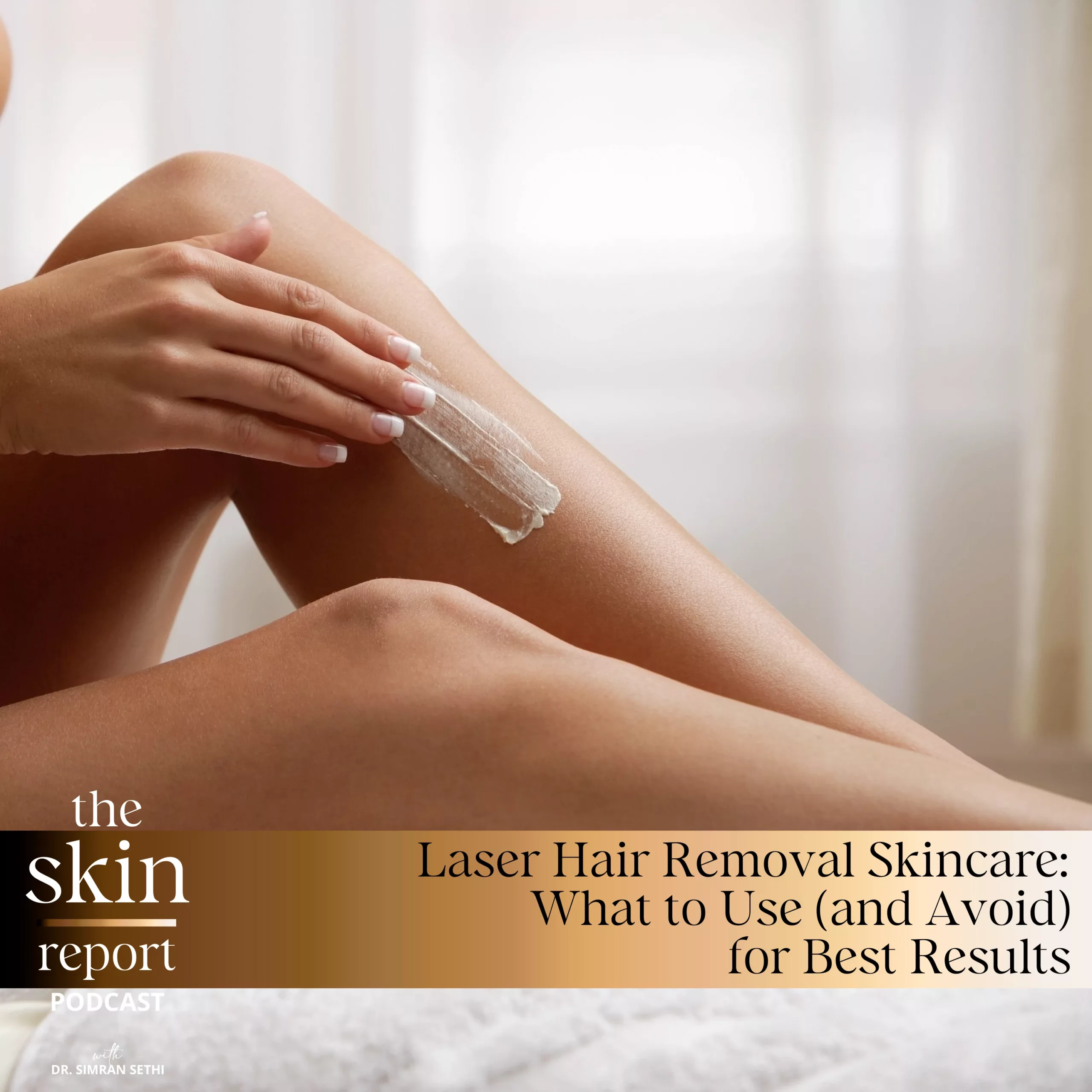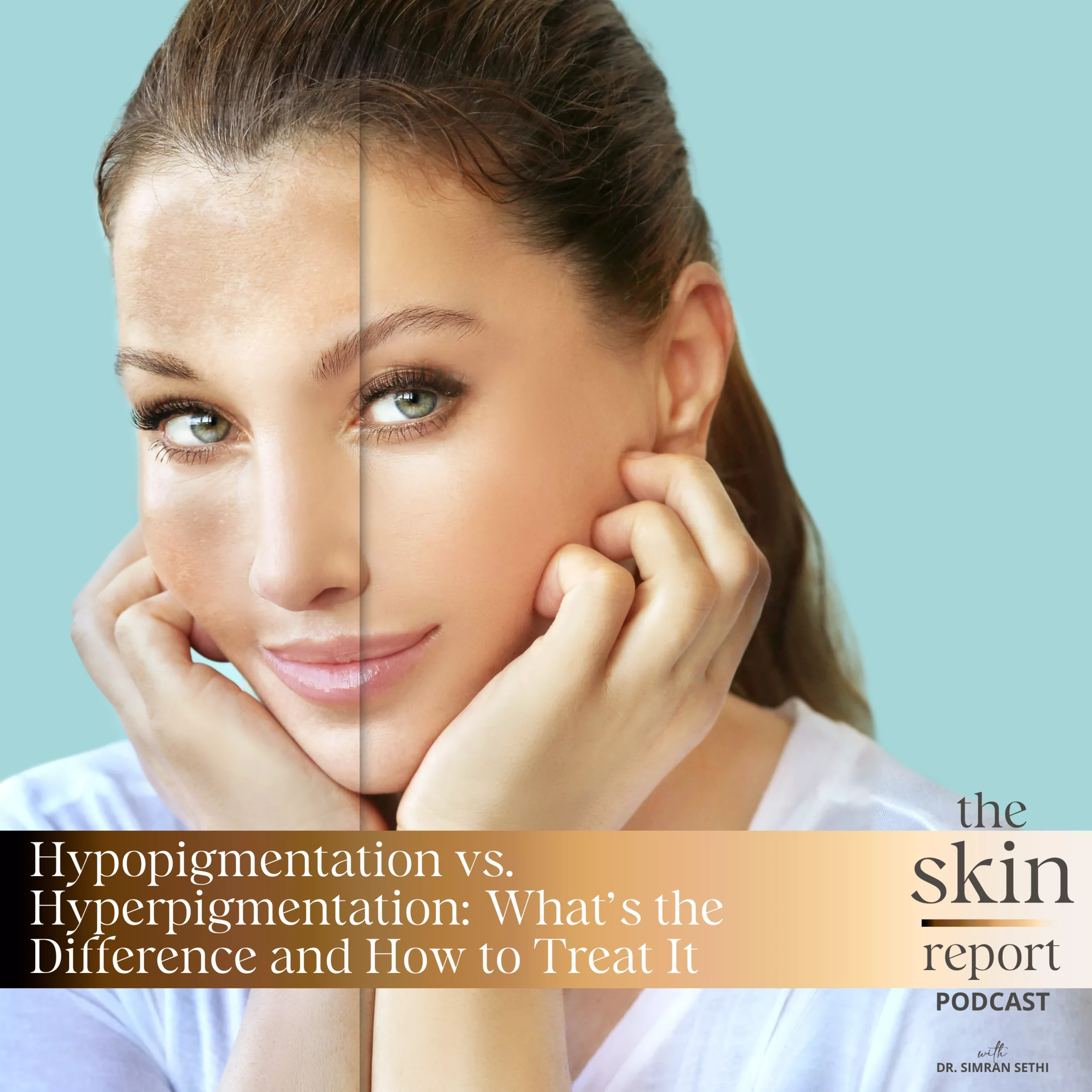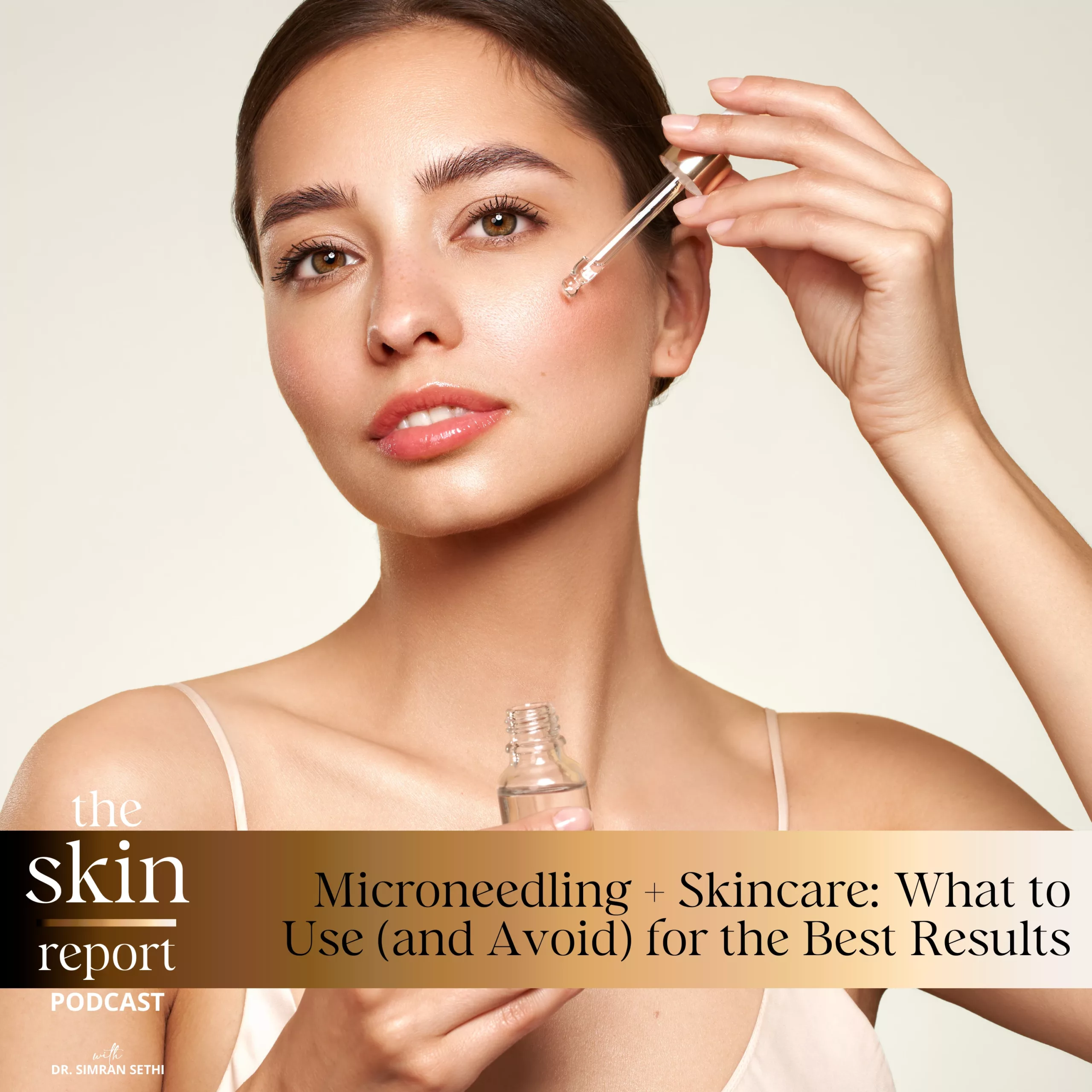Accutane for Severe Acne:
Signs, Solutions, and Skincare Strategies
In this episode, we explore the highly debated topic of Accutane and its use in treating severe cystic acne. Dr. Sethi shares her professional insights on the proper use of Accutane, dispelling common myths and fears surrounding this potent acne treatment. She explains how the drug has become more widely prescribed by dermatologists today, the importance of addressing lifestyle factors like diet and skincare before considering Accutane, and how to optimize results while on the medication. Shaheera and Dr. Sethi also discuss the key signs parents should look for when deciding if Accutane is the right path for their child. If you’re curious about Accutane, skincare during treatment, and tips for maintaining clear skin post-treatment, this episode is packed with actionable advice.
Exclusive Offer for the Skin Report Audience:
Use SKINREPORT20 in the shopping cart to receive 20% discount
LEARN MORE!
The Skin Report Podcast : Subscribe and Download!
Skin By Dr. Sethi – Blog
Skin By Dr. Sethi – Skincare
Skin By Dr. Sethi – Beauty Instagram
Dr. Sethi’s Medical Spa
Dr. Sethi’s Medical Spa – Instagram
Shaheera:
I have heard a lot about Accutane. Personally, I’ve not used it. I have plenty of friends who have throughout high school, even adult years, and there’s a lot of interesting misconceptions and fears around it. And when you Google it, well, when you Google anything, you generally find some very fear-based information. What are your thoughts on Accutane just very briefly from a doctor’s medical aesthetics perspective?
Dr. Sethi:
So I actually think Accutane is now appropriately used. I felt like it was underutilized maybe 10 years ago, but today, dermatologists are a lot more proactive about starting patients on Accutane, and I think that’s great because we have so much safety data on it or our how to use it safely, and it really, really does affect a person’s self-confidence. Having severe cystic acne is not easy and it is something that can be addressed. So I’m so happy that a lot more dermatologists are prescribing it. Also, that a lot more parents are allowing their children to use it. My son is also on Accutane, and I’m going to tell you as a parent, it was kind of a hard decision because… And this is me knowing so much about it, I can just imagine if you don’t have a healthcare background, the hesitation around it. But I’m so happy that he’s using it now. But yes, there are so many misconceptions.
Shaheera:
What is the telltale signs of somebody who needs to seriously consider it? So parents who may be watching this or listening, they know, okay, these are something they can relate to, their kid relates to, something that they don’t have to be afraid of to venture in. How long do you have to be experiencing really, really serious cystic acne to go into the Accutane path?
Dr. Sethi:
When it comes to cystic acne, I think that a moderate to severe acne is an indication for Accutane, but before you explore, it’s really important to address diet, lifestyle, and skin care. And if those interventions are not successful at either taking away the acne or reducing its severity, then next step is Accutane. And I would say when it comes to diet, the big one is taking your child off of any kind of dairy products. And remember, protein powder is very popular amongst young men and generally they’re usually whey protein powders. That’s dairy. Make sure you’re not eating a bunch of protein bars, shakes. So a diet that is primarily dairy-free. Then skincare, take them to an esthetician, a reputable esthetician who works on acne and have them go through a series of facials every two to four weeks for a good few months, I would say up to six months. Get them on a skincare routine that is not over-drying them, includes a retinol or tretinoin. And if all those things don’t result in the acne coming down to a mild level, then Accutane is the next step.
Shaheera:
What are some things they, from a skincare perspective and just lifestyle perspective, when they are on Accutane, well when do they first start seeing the kind of inflammation reducing, the results, that timeline? What does that look like from your experience?
Dr. Sethi:
Yeah, so that’s actually a really good question because there are a lot of changes that are going to be happening. And there are a lot of great things that you can do from the skin health, skincare and lifestyle habits perspective. So when Accutane is prescribed, the physician has to deliver a certain dose over a course of months based on the weight of their patient. And typically that ends up being on Accutane for about six months. And what I like doing is have the patient take a month of a low dose of Accutane and then double that, and if they are doing well in terms of symptoms, continue.
So with symptoms, I’m talking about dryness. Accutane causes a lot of dryness and it causes a lot of skin cell turnover. So you can start Accutane and in about a month or two months into it, you might get a worse breakout because you’re purging through and your skin is going to look worse. And that can be very, very disturbing. But that is common. And sometimes that means adjusting the dosage and the pattern of how to use it.
Now when it comes to what should you be doing while you’re on Accutane, skincare is big. The skin gets really dry while you’re an Accutane and not just your skin, your scalp, you start having more nosebleeds and it’s really important to be on a cleanser that is a good exfoliant but also has some sort of hydrating properties to it. And so you’re not over-drying an already dry skin texture and then applying… Some dermatologists will tell kids or TikTok will tell them that they should use Vaseline. No, because remember you’re making a lot of new skin, so you’ll have a lot of dead skin sitting on the skin surface and that traps it.
Shaheera:[inaudible 00:06:10], it’s not actually skin care.
Dr. Sethi:
Exactly. So a nice oil-based moisturizer, oil-based serum, don’t apply oil directly to the skin. Don’t put coconut oil or almond oil onto the skin directly, but oil-based serum. And then don’t use any kind of mechanical facial scrubs on the face. And sunscreen, SPF is equally important.
Shaheera:
How long does it generally take to go through your timeline and then when you have amazing results maintaining it? You said with proper skin care, obviously a very easy to do lifestyle change, whole foods, a lot of hydration, a lot of water. What are some things people can do to kind of carry on their really great results if they have to re-enter their Accutane journey? What are some pro, three pro tips that you have to just have the best results so they can fully enjoy their new skin?
Dr. Sethi:
Well, after you come off of Accutane, and if you still have a little bit of scarring, you can start medical grade treatments like microneedling, lasers for reduction of scarring. I generally like people to be three months out of using Accutane to start that. Even laser hair removal, I like them to be three months out. And then skin will be generally dry. Obviously I’m a big proponent of medical grade skin care, but that’s for a reason because if you’re going to take the time, spend the money to put something on your skin, make sure it is concentrated, has proper actives. The recurrence rate for acne after Accutane is quite low, about 10%. And if that was to happen, we don’t generally know why it’s happening, but this is theoretical. If you are using the right skin care products, you are staying off of dairy, you’re not smoking, you are likely also going to reduce the chances of recurrence.
So I would say that is still… And that’s something you should be doing anyway after going through an Accutane treatment. So I think those are all great ways to optimize results. But remember, also going to an esthetician. I have been sending my son to an esthetician, initially for every two to three weeks. An esthetician who works with people who’ve been on Accutane, you cannot get microdermabrasion facials, you cannot get chemical peels. This is just sort of a lighter exfoliation, some extractions because that does reduce the extent of that skin purging that’s going to happen. And I actually also feel that it reduces scarring post Accutane.
Shaheera:
I think these are really easy tips. I think that you have explained it in a way that’s reducing a lot of that fear to actually try the medicine. And then I think the guidance is really easy actually and very doable. I’m sure if people have any questions about it, they can leave a comment.
Dr. Sethi:
Absolutely.
Shaheera:
We so welcome that because we realize this is such a hugely searched and researched topic.
Dr. Sethi:
Yeah. And again, it’s an excellent effective drug, but there’s some homework that you have to be doing as the person using it and it is easy to do.
Thank you for joining us today. And again, if you like this kind of content, please like, subscribe and if you have any questions, leave them in the comments.


